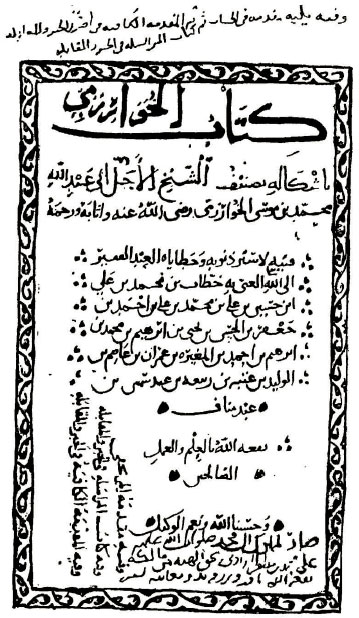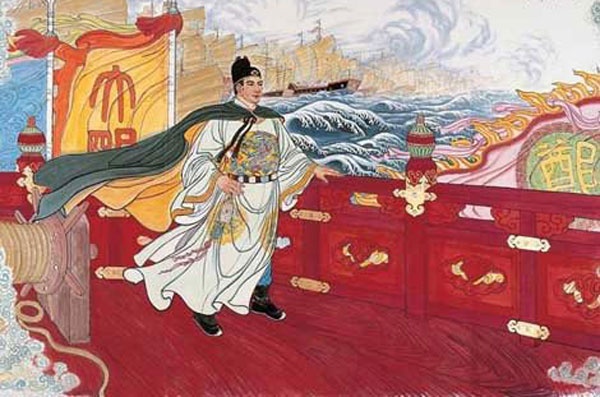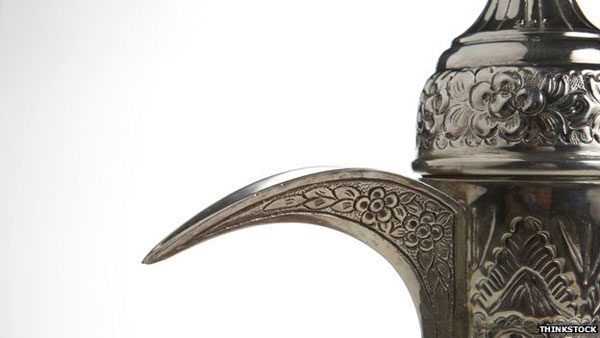[one_half]
While many secondary school students struggling through math classes may not particularly appreciate the importance of algebra, it is one of the most important contributions of the Muslim Golden Age to the modern world. It was developed by the great scientist and mathematician, Muhammad ibn Musa al-Khawarizmi, who lived from 780 to 850 in Persia and Iraq.

The title page of al-Khawarizmi’s book
[/one_half]
[one_half_last]
In his monumental book, Al-Kitāb al-mukhtaṣar fī ḥisāb al-jabr wa-l-muqābala (English: The Compendious Book on Calculation by Completion and Balancing), he set forth the basic principles of algebraic equations. The name of the book itself contains the word “al-jabr”, meaning “completion”, from which the Latin word algebra is derived. In the book, al-Khawarizmi explains how to use algebraic equations with unknown variables to solve real-world problems such as zakat calculation and inheritance division. A unique aspect of his reasoning for developing algebra is the desire to make calculations mandated by Islamic law easier to complete in a world without calculators and computers.
Al-Khawarizimi’s books were translated into Latin in Europe in the 1000s and 1100s, where he was known as Algoritmi (the word algorithm is based on his name and his mathematical works). Without his work in developing algebra, modern practical applications of math, such as engineering, would not be possible. His works were used as math textbooks in European universities for hundreds of years after his death.
[/one_half_last]



No Comments